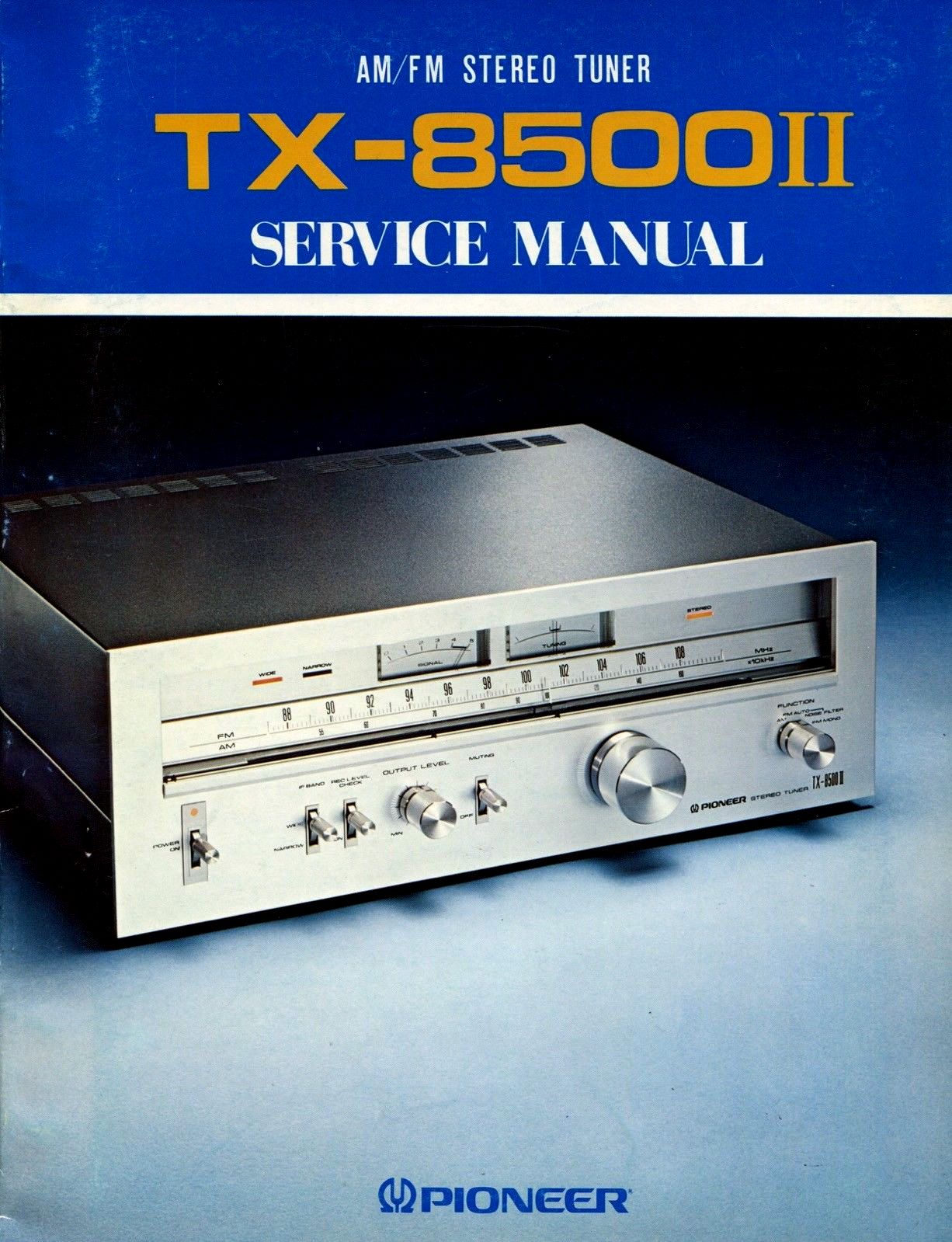Pioneer TX-8500 II
Revision as of 06:16, 6 December 2020 by Hifi-Purist (talk | contribs)
Data
General
- Manufacturer: Pioneer
- Model: TX-8500 II
- Type: Stereo/ Mono Tuner
- Years of manufacture: 1977 - 1979
- Made in: Japan
- Color: Stainless steel front - silver
- Power consumption: 20 watts
- Equipment:
- FETs: 3
- ICs: 6
- Transistors: 11
- Diodes: 16
- Dimensions: 420 x 150 x 395 mm (WxHxD)
- Weight: 8,1 kg
- Original price: 995 DM
Technical data
- Reception: FM / FM and MW
- Tuning display: Analogue
- Frequencies: FM: 88-108 MHz / MW: 535-1605 KHz.
- Frequency response: 20 Hz - 15 kHz (+/- 0.2 dB)
- Input sensitivity:
- FM Mono: 10.3 dBf (1.8 µV).
- AM: 300 µV (IHF ferrite antenna)
- 50 dB attenuation sensitivity: Stereo = 37.2 dBf (40 µV)
- Muting: 19.2 dBf (5 µV)
- Distortion factor:
- at 15 kHz: 0.8%
- at 1 kHz: 0.1%
- Signal to noise ratio: 75 dB (FM)/ 50 dB (MW)
- Channel separation: 55 dB
- selectivity: 90 dB
- Co-wave selection: 1.0 dB
Spurious wave selection: 80 dB (FM)/ 30 dB (MW)
- IF attenuation: > 110 dB
- IF attenuation: 110 dB
- AM suppression: 65 dB
Connections
- Output Level FM (100% MOD)
Fixed: 650 mV/ 4.2 kOhm Variable: 50 mV - 1.3 V/ 3.6 kOhm (front panel control) Output Level AM (30% MOD) Fixed: 200 mV/ 4.2 kOhm Variable: 15 mV - 400 mV/ 3.6 kOhm (front panel)
- Antenna inputs: 2
300 Ohm - balanced 75 Ohm - unbalanced
Special Features
- Output level adjustable (Output Level)
- Rec Level switch - higher S/N when recording over a wider frequency range (see report)
- Muting switch in 2 steps for FM operation
- Independent output level controls for VHF and medium wave
- Transmitter tuning with 2 setting instruments and linear scale
Remarks
- Other models in the same series:
Pictures
- Extract from brochure: Pioneer TX-8500 II
Reviews
- A premium stereo tuner from Pioneer with automatic noise reduction.
- The advanced hi-fi technology in this unit of the time, especially with the rec level check, makes it a very valuable tuner for anyone making recordings from the radio. This uses a signal generator to send a 440Hz signal to the output of a highly stable IC every 1.6 seconds - at the level of a 50% FM modulation.
